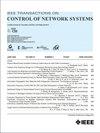径向网络潮流解的前向/后向扫描收敛性
IF 5
3区 计算机科学
Q2 AUTOMATION & CONTROL SYSTEMS
引用次数: 0
摘要
潮流问题是电力系统中的一个基本问题。配电网的通常径向(树)拓扑结构在交流潮流中引起空间递归结构,这使得一类有效的求解方法-向后/向前扫描(BFS)成为可能。在本文中,我们从收敛的角度重新审视BFS,这在以前很少被提及。我们介绍了BFS算法的三种变体:第一种是在单相网络模型中计算电压和线路电流;第二算法将第一算法扩展为具有$Y$和$\Delta$配置的不平衡三相网络;第三种方法是在经典的区域流模型中计算电压和线路潮流。我们证明了一个充分条件,在这个条件下,第一个算法是一个闭合电压集上的收缩映射,从而几何收敛到一个唯一解。将此证明推广到三相网络的第二种算法。然后利用单调收敛定理证明了第三种算法的收敛性。通过在IEEE测试系统中的仿真,验证了BFS算法的收敛条件、求解精度和计算效率。本文章由计算机程序翻译,如有差异,请以英文原文为准。
Convergence of Backward/Forward Sweep for Power Flow Solution in Radial Networks
Solving power flow is a fundamental problem in power systems. The normally radial (tree) topology of a distribution network induces a spatially recursive structure in ac power flow, which enables a class of efficient solution methods—backward/forward sweep (BFS). In this article, we revisit BFS from the perspective of its convergence, which was rarely addressed before. We introduce three variants of BFS algorithms: the first one calculates voltages and line currents in a single-phase network model; the second algorithm extends the first one to an unbalanced three-phase network with $Y$ $\Delta$
求助全文
通过发布文献求助,成功后即可免费获取论文全文。
去求助
来源期刊

IEEE Transactions on Control of Network Systems
Mathematics-Control and Optimization
CiteScore
7.80
自引率
7.10%
发文量
169
期刊介绍:
The IEEE Transactions on Control of Network Systems is committed to the timely publication of high-impact papers at the intersection of control systems and network science. In particular, the journal addresses research on the analysis, design and implementation of networked control systems, as well as control over networks. Relevant work includes the full spectrum from basic research on control systems to the design of engineering solutions for automatic control of, and over, networks. The topics covered by this journal include: Coordinated control and estimation over networks, Control and computation over sensor networks, Control under communication constraints, Control and performance analysis issues that arise in the dynamics of networks used in application areas such as communications, computers, transportation, manufacturing, Web ranking and aggregation, social networks, biology, power systems, economics, Synchronization of activities across a controlled network, Stability analysis of controlled networks, Analysis of networks as hybrid dynamical systems.
 求助内容:
求助内容: 应助结果提醒方式:
应助结果提醒方式:


